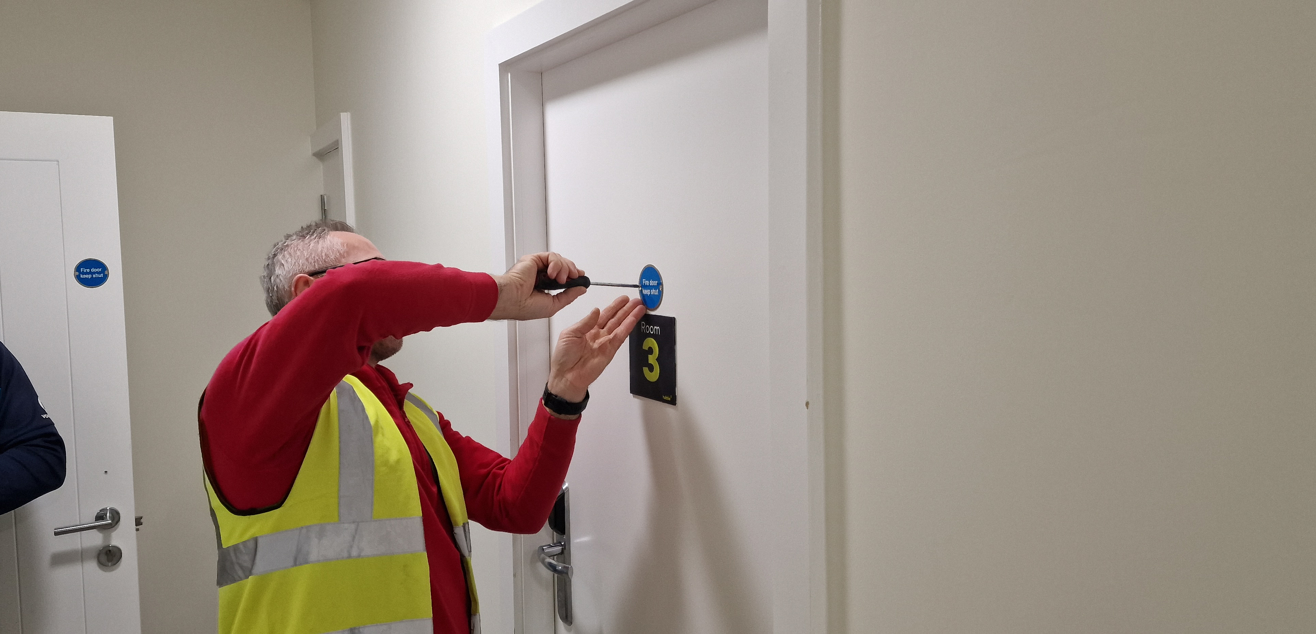30/08/2024

In nursing homes, where residents often have limited mobility and require assistance, therefore, ensuring robust fire safety measures is paramount. Passive fire protection (PFP) plays a crucial role in safeguarding nursing home residents by containing fires and preventing their spread, thus providing critical time for evacuation and reducing the risk of injury or fatality.
Passive fire protection involves the use of building components to control or limit the spread of fire and smoke. This includes fire-resistant walls, floors, doors, and other structural elements designed to compartmentalize a building into smaller, fire-resistant sections. These measures are essential in healthcare settings, including nursing homes, where the ability to quickly and safely evacuate residents is often limited.
Fire-Resistant Walls and Floors: These are constructed using materials that can withstand high temperatures and prevent the spread of fire and smoke. They help to compartmentalize the building, containing the fire within a specific area.
Fire Doors: Specially designed doors that can resist fire for a certain period, preventing it from spreading to other parts of the building. They are crucial in maintaining the integrity of fire-resistant compartments.
Fire Dampers: Installed in air ducts, these devices automatically close when they detect heat, stopping the spread of fire and smoke through the ventilation system.
Intumescent Coatings: These are paint-like substances that expand when exposed to heat, forming an insulating layer that protects structural elements from fire.
Fire Stopping Materials: These include sealants, mortars, and boards used to fill gaps and openings in walls and floors, preventing the passage of fire and smoke.
The Health Technical Memorandum (HTM) 05-02 provides comprehensive guidance on fire safety in the design of healthcare premises. It emphasizes the importance of passive fire protection in facilitating horizontal evacuation, a strategy commonly adopted in nursing homes and other healthcare facilities. Horizontal evacuation involves moving residents to a safe area on the same floor, rather than attempting to evacuate them vertically via stairs or elevators, which can be challenging and time-consuming.
By compartmentalizing the building into fire-resistant sections, passive fire protection helps to contain the fire within a specific area, allowing more time for residents to be safely moved to adjacent compartments. This approach is particularly beneficial in nursing homes, where many residents may be bedridden or require wheelchairs and other mobility aids.
To ensure the effectiveness of passive fire protection measures, regular fire safety surveys are essential. These surveys assess the condition of fire-resistant barriers, doors, and other components, identifying any defects or areas that require maintenance or upgrades. Crossfire Specialist Contracts Ltd offers comprehensive passive fire protection surveys tailored to the unique needs of nursing homes.

At Crossfire, we understand the critical importance of maintaining effective passive fire protection in nursing homes. Our team of experienced professionals conducts thorough inspections, providing detailed reports and practical recommendations to enhance fire safety. Our services include:
By choosing Crossfire, nursing homes can ensure they are fully compliant with fire safety regulations and that their residents are protected by the highest standards of passive fire protection. Our commitment to excellence and safety makes us the trusted partner for fire protection services in healthcare settings.
Passive fire protection is a vital component of fire safety in nursing homes, providing the necessary barriers to contain fires and facilitate safe evacuation. Regular fire safety surveys, like those offered by Crossfire Specialist Contracts Ltd, are essential to maintaining these protective measures and ensuring the safety of residents. Trust Crossfire to deliver the expertise and quality service needed to keep your nursing home safe and compliant with all fire safety regulations.
If you require any assistance regarding Fire Safety within your Nursing Home, Contact our team who will be happy to help.
The Yard
100 Glen Road
Maghera
BT46 5JG
24A Baggot Street Upper
Dublin
D04 N528
